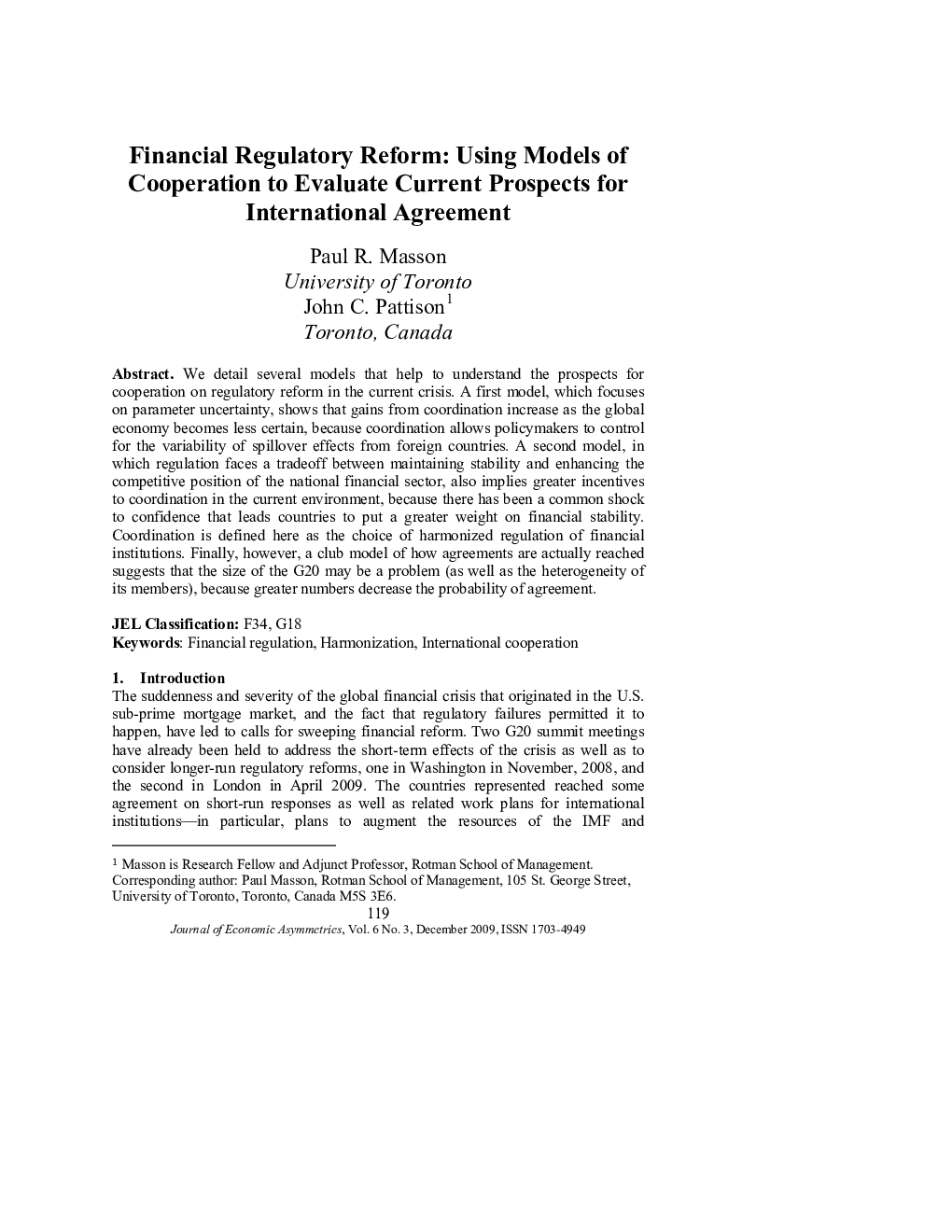| Article ID | Journal | Published Year | Pages | File Type |
|---|---|---|---|---|
| 5097801 | The Journal of Economic Asymmetries | 2009 | 18 Pages |
Abstract
We detail several models that help to understand the prospects for cooperation on regulatory reform in the current crisis. A first model, which focuses on parameter uncertainty, shows that gains from coordination increase as the global economy becomes less certain, because coordination allows policymakers to control for the variability of spillover effects from foreign countries. A second model, in which regulation faces a tradeoff between maintaining stability and enhancing the competitive position of the national financial sector, also implies greater incentives to coordination in the current environment, because there has been a common shock to confidence that leads countries to put a greater weight on financial stability. Coordination is defined here as the choice of harmonized regulation of financial institutions. Finally, however, a club model of how agreements are actually reached suggests that the size of the G20 may be a problem (as well as the heterogeneity of its members), because greater numbers decrease the probability of agreement.
Related Topics
Social Sciences and Humanities
Economics, Econometrics and Finance
Economics and Econometrics
Authors
Paul R. Masson, John C. Pattison,
